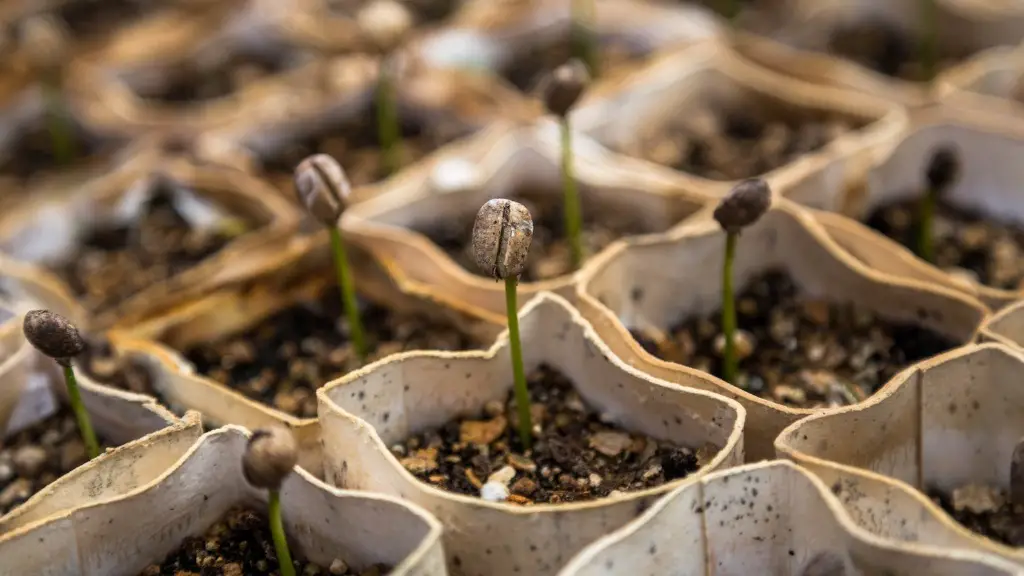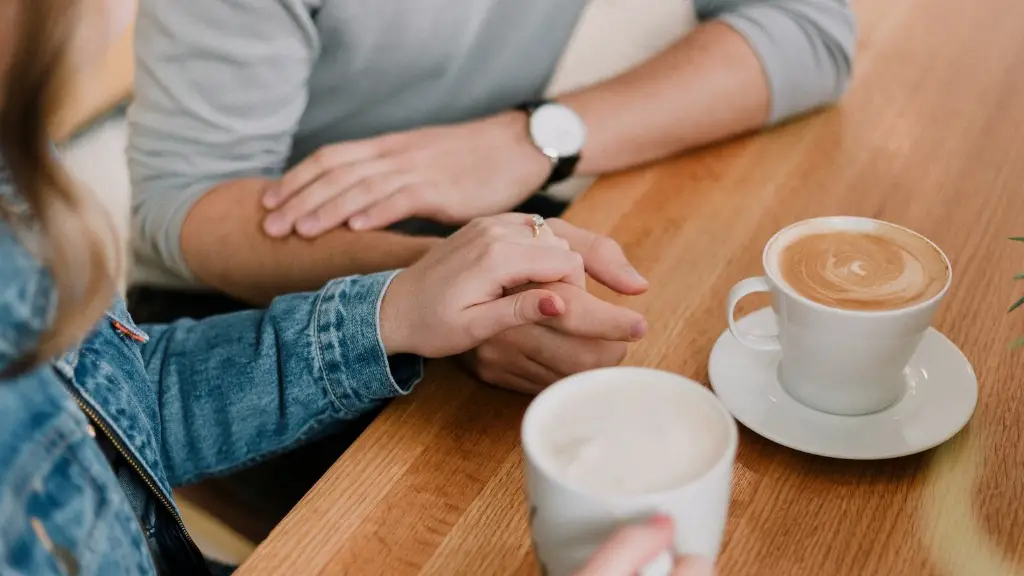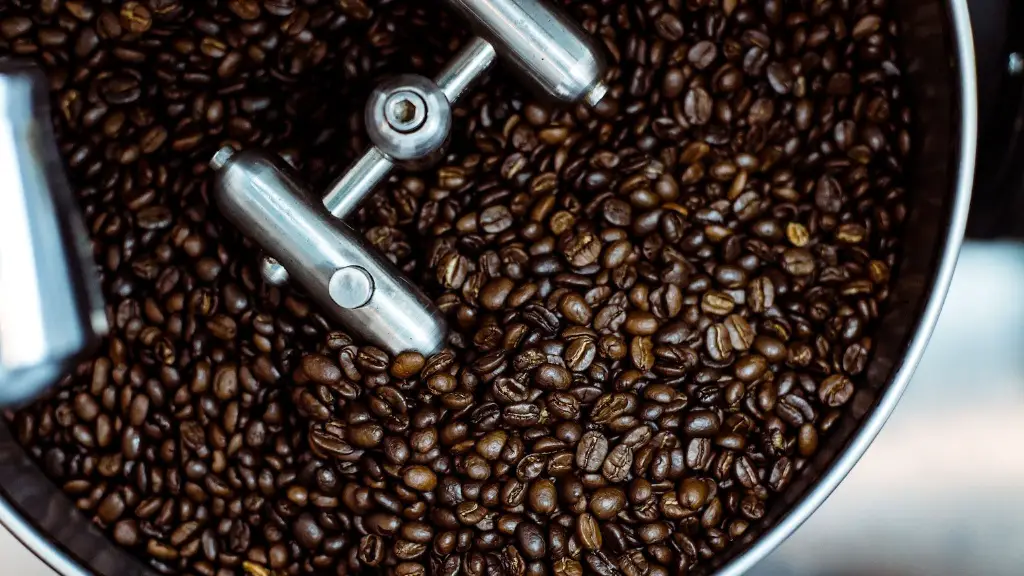Drinking coffee is one of the most popular beverages in the world, and many people rely on it to get their daily boost of energy. However, some may find that after drinking coffee, they get a headache. This is a very common issue and there are various explanations as to why this happens.
One reason for getting a headache after drinking coffee is due to caffeine withdrawal. Many individuals have become dependent on their daily dose of caffeine, meaning that when it’s taken away or reduced, it can cause headaches and other symptoms.
Another reason for experiencing headaches after consuming coffee is because of the high levels of acidity found in coffee beans. Acidity can irritate the stomach lining and cause headaches in some people.
Finally, many people who drink caffeinated beverages may be dehydrated, which means they are not getting enough fluids into their bodies. Dehydration can also cause headaches and other health issues, so it’s important to stay hydrated when drinking coffee.
In conclusion, if you experience frequent headaches after drinking coffee, it is important to investigate the potential causes and take steps to prevent them from happening again. Drinking plenty of water throughout the day and limiting your caffeine intake could help you avoid getting headaches after drinking coffee.
Factors That Contribute To Coffee-Induced Headaches
Coffee-induced headaches can be a real nuisance and can often be difficult to diagnose. Some of the most common causes include caffeine sensitivity, dehydration, overconsumption, and even withdrawal. Caffeine sensitivity is the most common cause of coffee headaches, as some people are more sensitive to the effects of caffeine than others. Dehydration is also a major factor and can be caused by drinking too much coffee without enough water intake throughout the day. Overconsumption of coffee can lead to increased blood pressure and increased heart rate, which can cause headaches in some people. Lastly, withdrawal from coffee after a period of regular consumption can also cause headaches due to reduced levels of caffeine in the body.
It is important to remember that there are many potential causes for coffee-induced headaches and it is best to consult a doctor if you experience any concerning symptoms. Paying attention to your body’s cues and making sure you get enough fluids throughout the day are key factors in avoiding coffee-related headaches.
Different Types of Headaches After Drinking Coffee
Coffee is a popular beverage enjoyed by many people, but it can also lead to headaches in some individuals. It is important to understand the various types of headaches that can be caused by drinking coffee so that you can make informed decisions about your caffeine consumption.
The most common type of headache associated with coffee consumption is known as a “caffeine headache”. This type of headache typically occurs when you consume too much caffeine at once or over a short period of time. Symptoms may include pressure or tension around the temples and forehead, and pain that may last for several hours.
Another type of headache related to coffee is known as “rebound” or “withdrawal” headaches. These occur when someone who regularly consumes large amounts of caffeine suddenly stops drinking it. The symptoms are generally similar to those of a caffeine headache, including pressure and pain in the head and facial area, but they may be more intense and last longer.
Finally, some people experience “tension” headaches after drinking coffee due to the stimulating effects of the caffeine. This type of headache is characterized by tightness and pain in the neck, shoulders, and scalp muscles that can last for several hours.
It is important to note that not everyone will experience headaches after drinking coffee, so it is best to monitor your individual reaction after consuming any caffeinated beverages. If you do experience headaches after consuming coffee, consider reducing your intake gradually and seeking medical advice if necessary.
Overall, understanding the different types of headaches caused by drinking coffee can help you make informed decisions about your caffeine consumption and avoid potential health issues associated with overconsumption.
Symptoms Of Caffeine Intolerance
Caffeine intolerance is a condition where the body cannot effectively process caffeine, leading to a range of unpleasant symptoms. Common symptoms include headaches, dizziness, nausea, and difficulty concentrating. The most prominent symptom is often headache after drinking coffee or other caffeinated beverages. This is due to the body releasing histamine, the chemical responsible for causing inflammation, in response to the caffeine.
Other symptoms of caffeine intolerance may include jitteriness, rapid heartbeat, insomnia, and anxiety. People may also experience digestive issues such as abdominal pain and diarrhea. In some cases, they may be sensitive to certain food additives such as artificial sweeteners or preservatives which can worsen their symptoms.
For those with severe caffeine intolerance, it’s important to avoid caffeine altogether or limit their intake drastically. People should also pay attention to their diet and try to identify any foods that may be triggering their symptoms. Eating a balanced diet that’s low in processed foods and high in fresh fruits and vegetables can help reduce symptoms of caffeine intolerance.
It’s important to note that not everyone experiences the same symptoms when it comes to caffeine intolerance; some people may only have mild discomfort while others can have more severe reactions. If you’re experiencing adverse reactions after consuming caffeinated beverages or foods, consult your doctor for proper diagnosis and treatment options. Seeking medical advice is essential for managing this condition.
How To Ease A Headache After Drinking Coffee
Coffee is a popular beverage that can be enjoyed by many. However, some people may experience headaches after drinking coffee. This is usually due to the caffeine content of the beverage, and can be a sign that you are consuming too much caffeine. To ease a headache after drinking coffee, try reducing your caffeine intake, drinking more water throughout the day, and taking an over-the-counter pain reliever such as ibuprofen or acetaminophen.
If you are prone to headaches after drinking coffee, try avoiding it or reducing your intake. If you do choose to drink coffee, make sure to drink it in moderation and spread out your consumption throughout the day. Additionally, make sure to drink plenty of water throughout the day to stay hydrated and avoid dehydration which can worsen headaches. Finally, if you experience a headache after drinking coffee, take an over-the-counter pain reliever such as ibuprofen or acetaminophen as soon as possible for relief.
It is important to note that if you frequently experience headaches after drinking coffee despite following these tips, it may be best to avoid it altogether or consult your doctor for further advice and treatment options. Additionally, pay attention to how much caffeine you are consuming in other sources such as tea, energy drinks and soda so that you do not exceed your recommended daily dose of 300 mg per day. By taking these steps, you should be able to ease your headache after drinking coffee more effectively.
Dehydration, An Underlying Cause Of Headaches After Drinking Coffee
Headaches after drinking coffee can be caused by dehydration. Caffeine is a diuretic, which means that it increases urine production and can lead to dehydration. The body needs an adequate amount of water to function correctly, and when it lacks this amount, headaches may occur. In addition, when you drink coffee, the caffeine constricts the blood vessels in the brain, which can lead to headaches. To avoid these uncomfortable headaches, it is important to drink plenty of water before and after consuming coffee. Additionally, it may be helpful to reduce your intake of coffee if you are prone to headaches. It is also important to note that if you are sensitive to caffeine or have certain medical conditions like high blood pressure or anxiety disorder, drinking coffee may worsen your symptoms and should be avoided.
Stress And Anxiety As Possible Reasons For Getting A Headache After Drinking Coffee
It is not uncommon to experience a headache after drinking coffee. This is because caffeine, the active ingredient in coffee, can act as a stimulant and can cause an increase in stress and anxiety levels. When this happens, it can put pressure on the blood vessels in the head and lead to a headache. Additionally, people who are prone to headaches may be more sensitive to the effects of caffeine and may be more likely to experience headaches after drinking coffee.
Stress and anxiety can also be caused by lifestyle factors such as poor sleep, lack of exercise, unhealthy eating habits and excessive alcohol consumption. All of these things can contribute to an increase in stress and anxiety which could result in a headache after drinking coffee.
If you are experiencing frequent headaches after drinking coffee, it is important to consider whether stress or anxiety might be playing a role. Taking steps to reduce your stress levels such as getting regular exercise, eating healthy foods and establishing good sleep habits can help reduce your risk of getting a headache after drinking coffee. It is also important to keep track of how much caffeine you are consuming and make sure that it does not exceed recommended levels for your age and health status.
Finally, if you find that headaches persist even when you manage your stress levels, it is important to talk with your doctor about other potential causes for your headaches such as food allergies or other medical conditions.
The Bottom Line
Headaches after drinking coffee can be caused by many things, ranging from dehydration to the caffeine itself. Caffeine is a stimulant, and too much can cause headaches, anxiety, and other physical symptoms. People with existing conditions like migraines or caffeine sensitivity may be more prone to headaches after consuming coffee. It’s important to pay attention to how your body responds after drinking coffee so that you can determine the best way to enjoy this popular beverage.
Ultimately, it’s up to each individual to decide if the benefits of drinking coffee outweigh the potential risks. Keeping track of your intake and staying hydrated are essential for avoiding headaches and other unpleasant side effects of coffee consumption.





